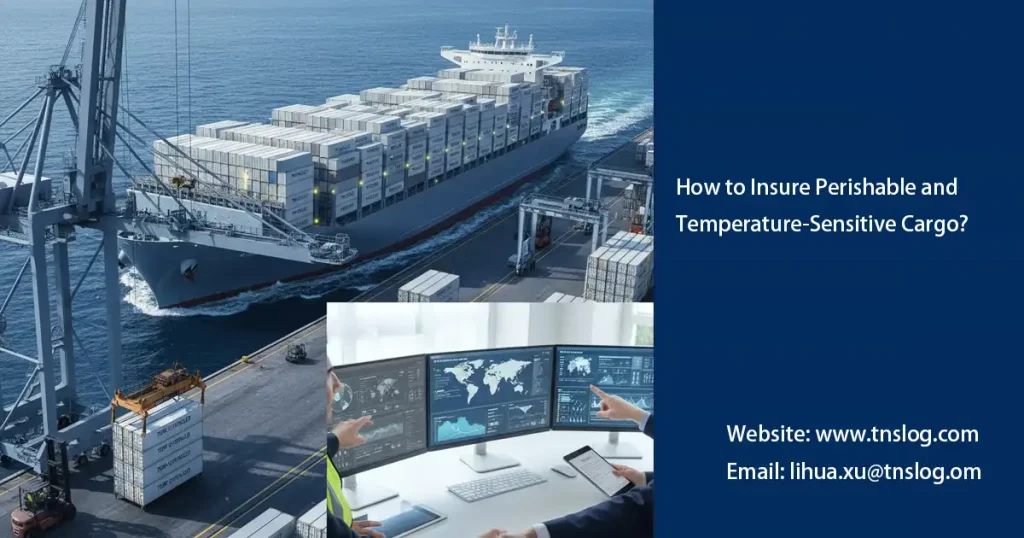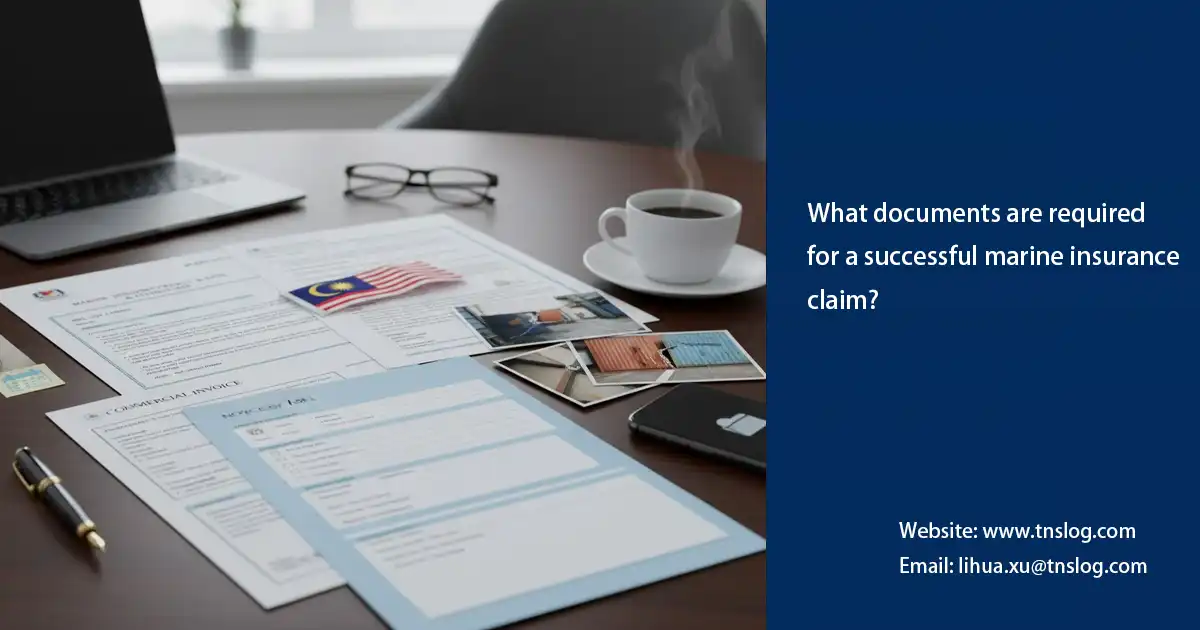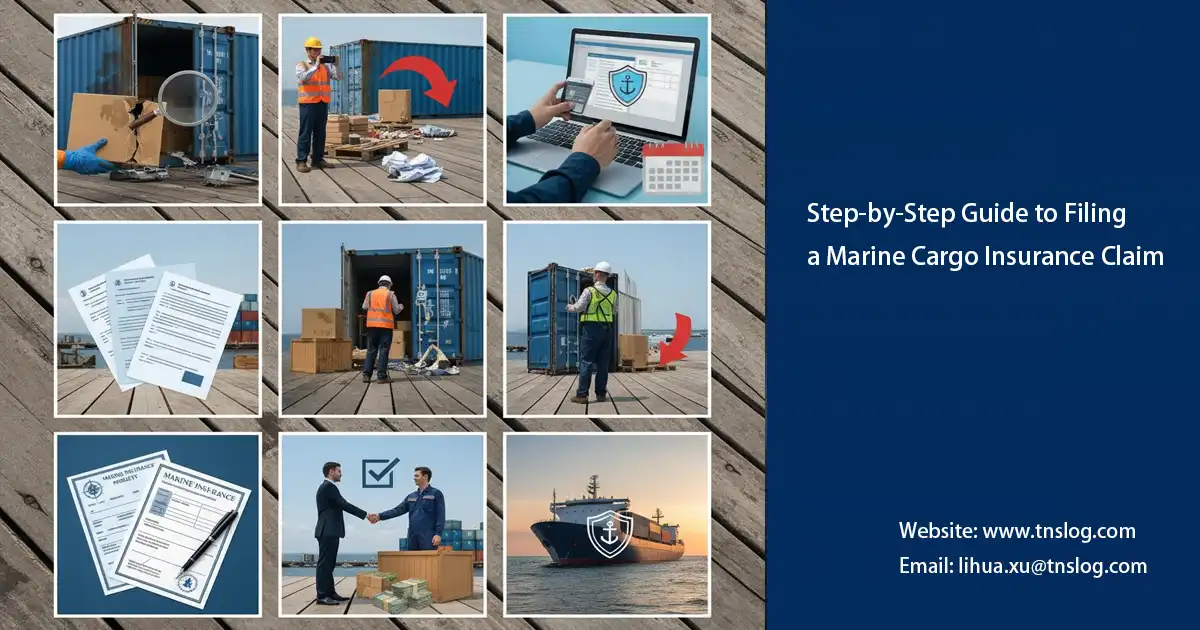How to Insure Perishable and Temperature-Sensitive Cargo?
Shipping perishable and temperature-sensitive cargo, such as fresh produce, seafood, frozen foods, and pharmaceuticals, carries unique challenges that standard marine insurance cannot fully cover. Have you ever considered the financial and reputational impact if your refrigerated goods were exposed to temperature fluctuations or delays? Marine insurance tailored for perishable cargo protects businesses from these risks, ensuring that products arrive safely and in optimal condition.

Understanding Cold Chain Risks
Perishable and temperature-sensitive cargo depends entirely on an uninterrupted cold chain to maintain quality and safety. Disruptions can happen at multiple stages:
- Temperature Deviations: Even a short exposure outside the required temperature range can compromise freshness, shelf life, or efficacy. For example, pharmaceutical shipments may lose potency, while seafood may become unsafe for consumption.
- Transit Delays: Delays at ports, customs, or during transfer between transport modes can increase the risk of spoilage.
- Equipment Failures: Refrigerated containers, trucks, or shipboard cooling systems may fail due to mechanical defects, human error, or insufficient maintenance.
- Improper Handling: Loading, stacking, or unloading mistakes can damage packaging, interrupt ventilation, or lead to contamination.
Understanding these risks is critical to determining the correct insurance type, coverage limits, and additional preventive measures.
Insurance Coverage Options
Marine insurance for perishable cargo requires more comprehensive policies than standard cargo insurance. Key coverage options include:
- All-Risk Coverage: Protects against loss or damage caused by unforeseen events such as fire, impact, or rough handling during transit.
- Temperature Deviation Coverage: Offers financial protection for losses resulting specifically from temperature fluctuations caused by equipment failure, human error, or delayed transit.
- Contingent Loss Coverage: Covers losses from shipping delays, port strikes, or regulatory inspections that extend transit time, leading to spoilage.
Choosing the right insurance policy depends on cargo type, shelf life, transportation route, and logistics partners. Understanding the claims process is equally important; for detailed guidance, refer to “Step-by-Step Guide to Filing a Marine Cargo Insurance Claim“
Risk Mitigation Measures
Insurance should complement, not replace, proactive cold chain management. Businesses can reduce claims and maintain policy effectiveness through several strategies:
- Continuous Monitoring: Install real-time temperature sensors and GPS tracking in containers to detect deviations early and take corrective action.
- Proper Packaging: Use insulated packaging, gel packs, dry ice, or vacuum-sealed containers tailored to specific product requirements to maintain temperature stability.
- Partner with Experienced Carriers: Choose freight forwarders and carriers with proven expertise in handling perishable goods. Experienced handlers ensure proper stacking, ventilation, and gentle loading and unloading.
- Route and Schedule Optimization: Minimize transit times and avoid high-risk routes prone to delays or extreme temperatures. Adjust shipping schedules to avoid weekends or holidays when port operations may be slower.
- Staff Training: Ensure staff involved in packing, monitoring, and handling understand the specific temperature and handling requirements of your cargo.
Proactive risk management not only lowers the chance of spoilage but may also reduce insurance premiums by demonstrating to insurers that risk is well controlled.
Claims Considerations
Filing a claim for perishable cargo can be complex, given the strict documentation and timing requirements:
- Maintain Complete Records: Temperature logs, shipping invoices, bills of lading, and inspection reports are essential to substantiate claims.
- Immediate Evidence Collection: Document any deviations or damage with photos and detailed notes immediately upon receipt.
- Timely Notification: Notify the insurer as soon as the issue is identified to comply with policy conditions.
Understanding why cargo gets damaged during ocean shipping can further strengthen your claim and reduce disputes. For more details, see “Top Causes of Cargo Damage in Ocean Shipping”.
Conclusion
Marine insurance for perishable and temperature-sensitive cargo is essential for protecting your business from financial loss due to spoilage, temperature excursions, or delays. Combining comprehensive insurance with proactive cold chain management ensures goods arrive safely, maintaining both quality and value. Partnering with experienced freight forwarders adds expertise in handling, monitoring, and claims processing, giving businesses confidence and peace of mind throughout the shipping process.
You may also be interested in
Have Anything To Ask Us?
Please fill in your email in the form and we’ll get back to assist you soon!




